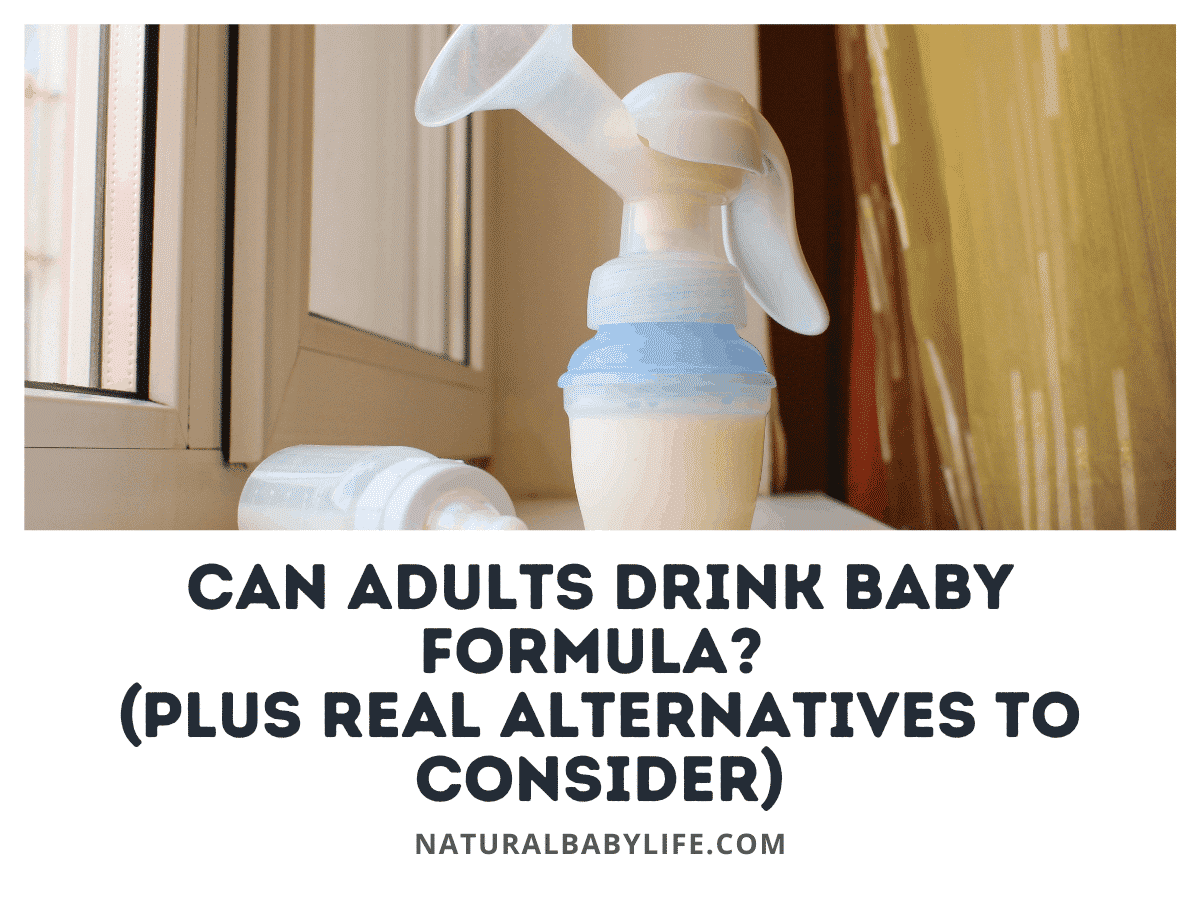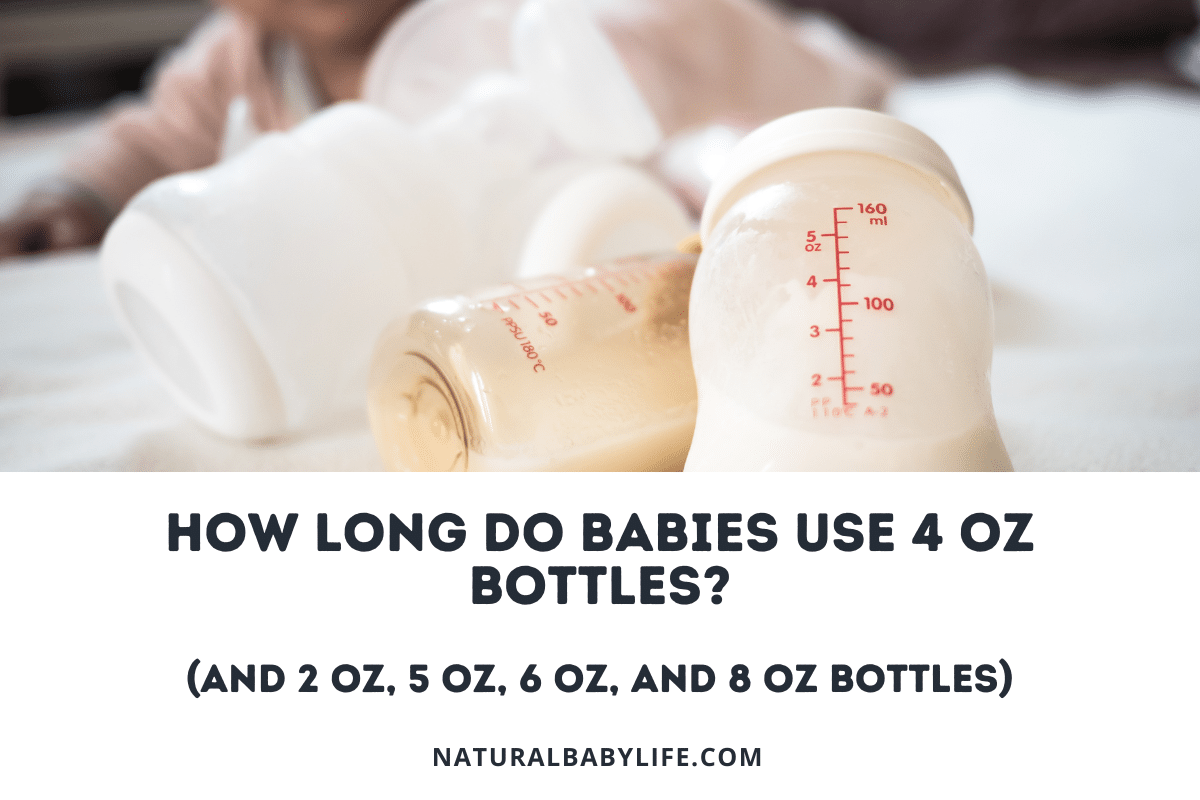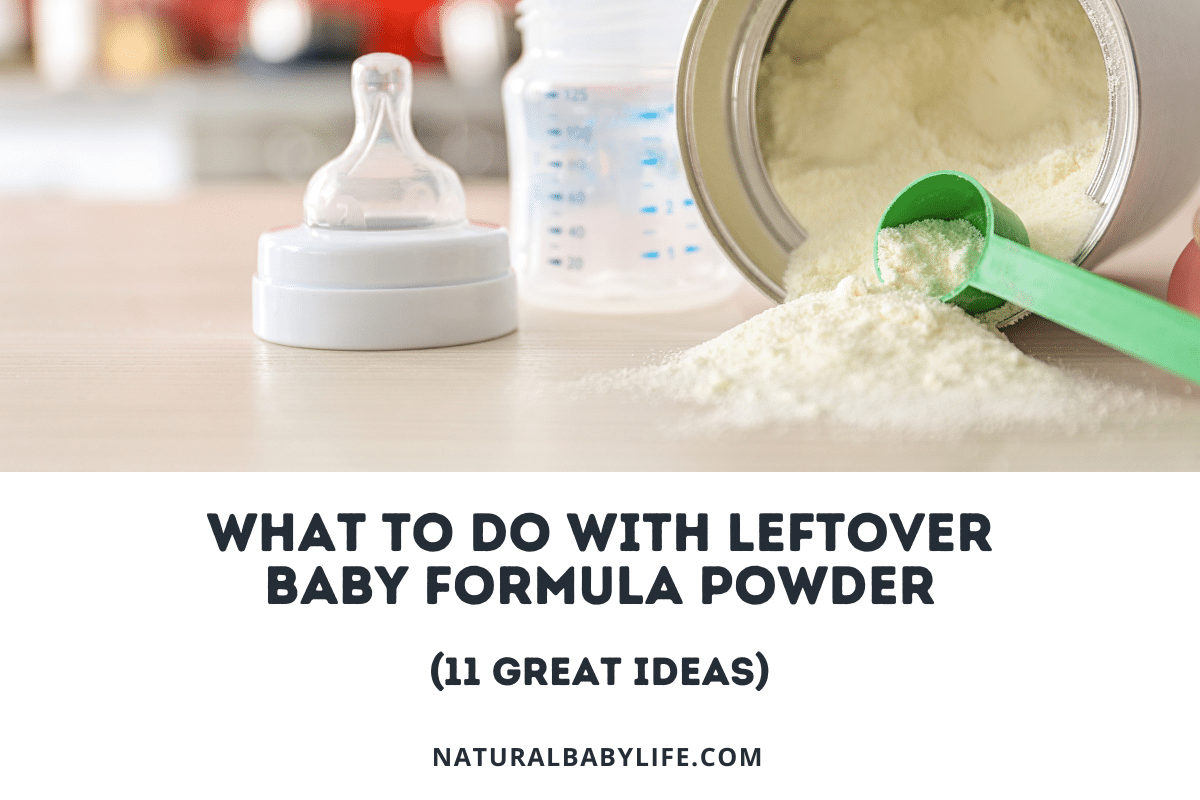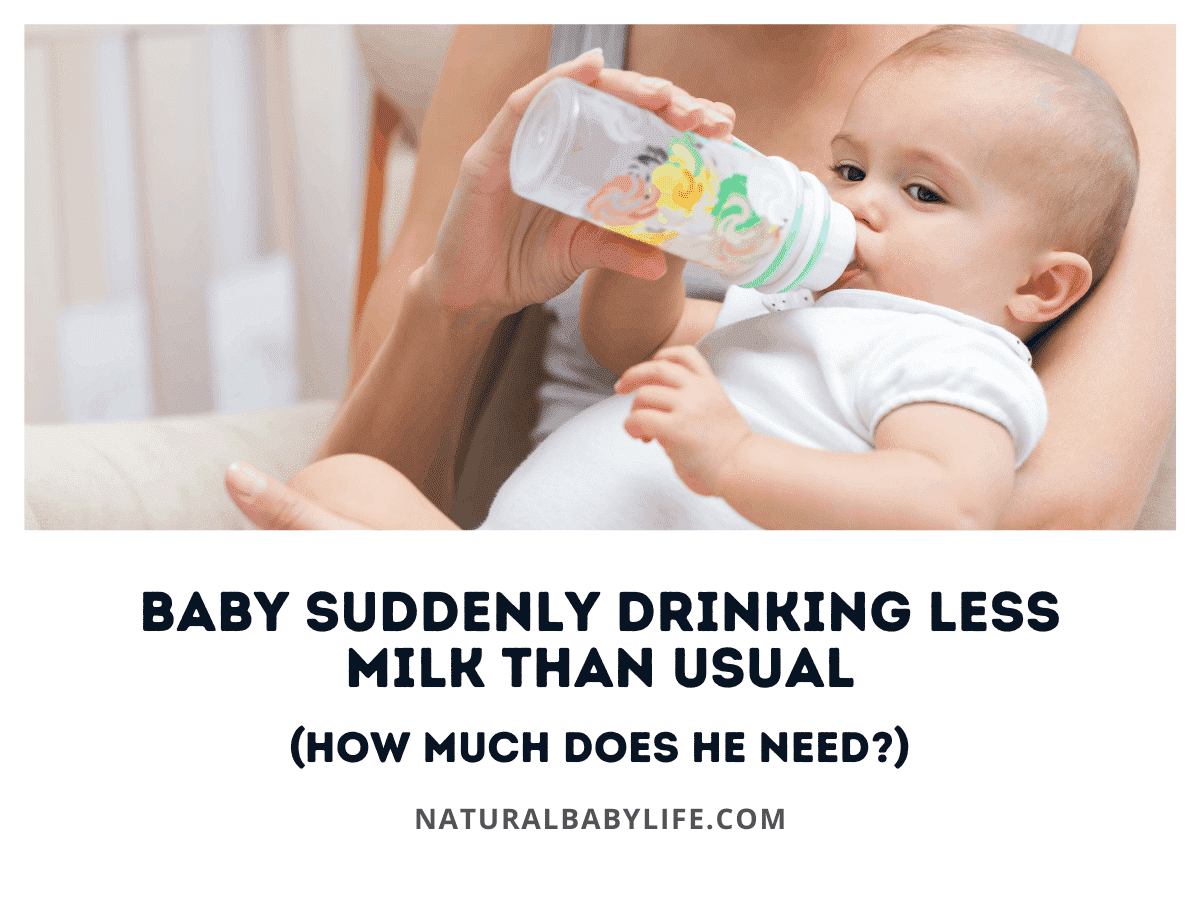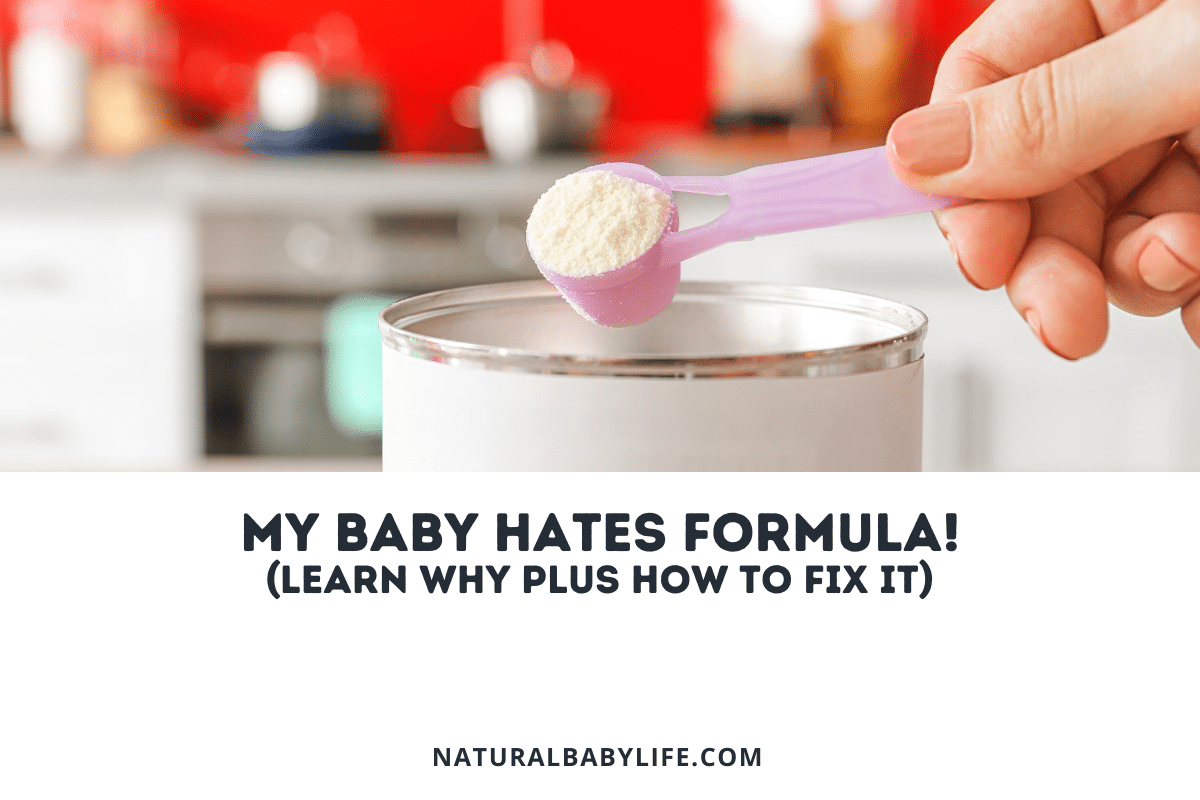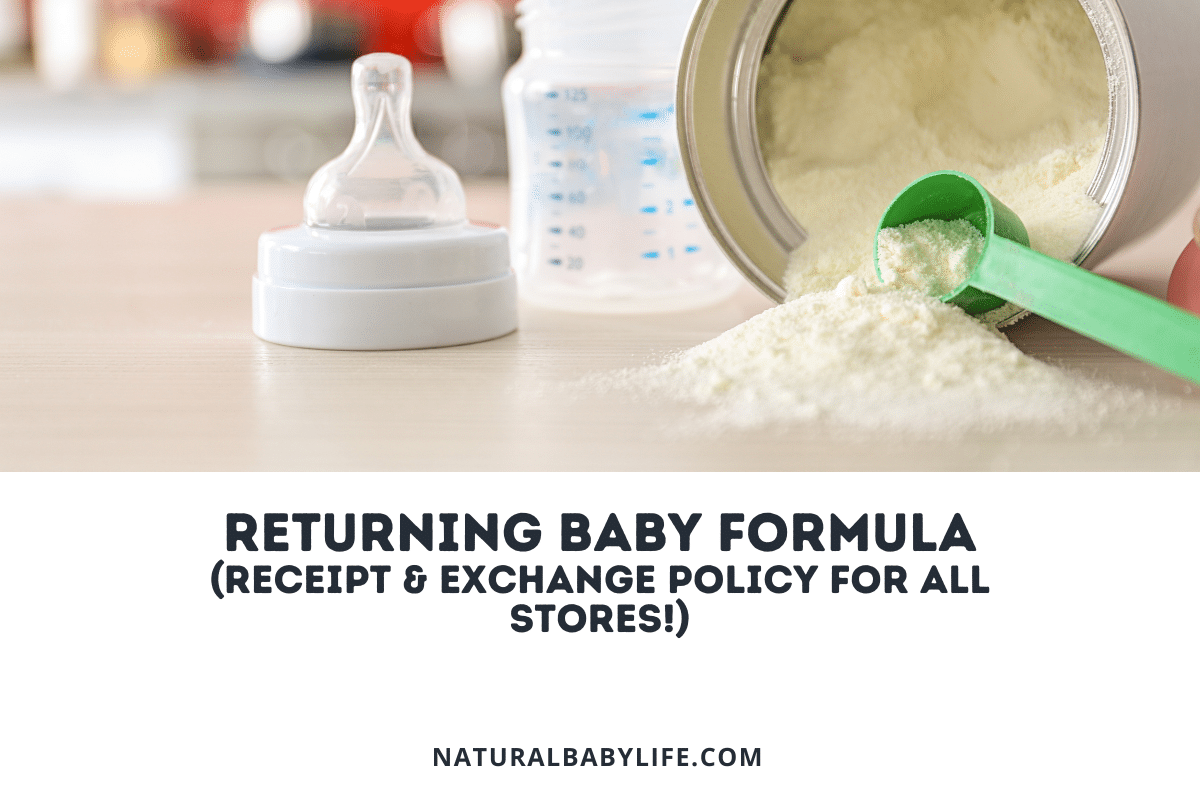For decades, baby formula has been used as an alternative for feeding babies when breastmilk is not an option, nor wanted as an option. Filled with a list long of vitamins, minerals, and an array of other ingredients that aid in growth and building up an immune response, some have considered using it beyond the infant stage and for adult usage, too. If it’s so great for infants for growth and other added benefits, what’s stopping adults from consuming it as a supplement?
Adults could drink baby formula without any health issues but it would not be a suitable substitute for an adult diet over the long term. While baby formula is designed to meet the nutritional and caloric needs of infants, it would not meet the needs of an adult.
So, what prompted the new “fad” in adults consuming baby formula? As bodybuilders and others looking for alternative ways to consume their calories and nutrients as the stigma on steroids increases, the curiosity towards baby formula has grown. Even with insufficient evidence stating whether or not it does in fact do anything for adults, the business for “adult formula” is starting to blossom.
Table of Contents
Could adults really drink baby formula?
Adults can, in fact, consume baby formula. However, as previously stated, an adult’s needs vary quite differently than that of a baby’s needs. Adults require so much more calories than babies, even breaking it down as far as needing so much more carbs, fat, and protein than an infant. Reaching for the big package of Ensure would be more suitable for an adult instead of the can of baby formula. And the taste isn’t all that great when you compare it to other meal replacement and protein shakes on the market geared towards adults.
What is even in baby formula, you may ask. When you stand in the baby formula aisle and compare packaging, the highlighted nutrients include:
- DHA (Docosahexaenoic Acid)
- ARA (Arachidonic Acid)
- HMO (Human Milk Oligosaccharides)
- Iron
- Cow’s Milk (as 80% of baby formula brands consist of dairy products)
- Vegetable oils
DHA is a fatty chain acid that has been linked to brain and eye development in babies in utero and within the first few months of development. For adults, having a diet consisting of omega-3 fatty acids have been linked to a decrease in major cardiovascular incidents. The average adult is recommended to consume one gram of omega-3s daily or eat 1.5 servings of fish a week. In baby formula, the average amount of DHA contained in an 8-ounce serving (maximum amount listed to feed a baby) is around 50mg.
Quite the difference! If you do the math, you would still need to consume 950 mg of omega-3s!
ARA, which isn’t considered as popular as DHA, is another fatty chain acid linked to brain and eye development for babies. The same rules apply to adults and babies as with DHA. Consuming a standard 8-ounce amount of formula will not supply the adult body with the fatty acids it needs compared to a baby.
HMOs are a specific form of carbohydrates found in breastmilk. They have recently been used by baby formula companies for marketing strategies in attempting to compare themselves to breastmilk. However, formula companies have only been successful in creating one or two strands in a lab compared to the dozens found in breastmilk. At this time, little is known about what purpose they exactly have in a baby’s diet, but most suspect they are linked to immune responses, especially in the first week of life to a month old. With such little knowledge, it is difficult to even say how they could benefit an adult.
Iron is a product used for red blood cell development, which in term aids development in babies. The window of needs for an infant compared to an adult, in this case, is quite small. A baby barely needs half of a milligram while the average adult needs 8-18mg. Quite a difference compared to fatty acid needs! The average 8-ounce formula contains barely 2 mg of iron, so a LOT of formula would have to be consumed by an adult daily to reach the minimum amount needed.
Cow’s milk is self-explanatory. It is the base of 80% of all formula products used on the market. The dairy proteins found in the formula are easier to digest, wheres giving a baby straight cow’s milk can cause quite the stomach issues. For adults, to consume dairy products it would be cheaper on the wallet to purchase a gallon of milk compared to a can of formula.
Vegetable oils in baby formula replace the cow’s fat, as the oils are easier to digest for babies compared to the milk fats, reducing the risk of stomach issues. With the boom in the “ketogenic diet”, adults are looking for supplements high in fat. However, coming in at under 10 grams of fat per 8-ounce serving for most baby formulas, a serving of avocado would be more suitable, or even straight olive oil!
Can adults survive on baby formula?
To be able to survive on baby formula alone, a LOT of formula would have to be consumed! An 8-ounce serving of formula would only give the adult body under 200 calories when the average adult is recommended to consume as little as 1,600 calories to as much as 3,000 calories!
That would require a LOT of formula consumption!
Can you put baby formula in coffee?
Essentially, yes you can add it to your “morning cup of Joe”, but there are no added benefits as far as making the beverage creamy or improve the taste. It would not serve a purpose to your coffee, or your morning for that matter.
Baby formula vs protein powder
Protein powder is known for what’s in the name: high levels of protein. Average protein powders on the market range from 20-30mg protein per 8-ounce serving, with the average adult needing only 35-45mg or protein daily.
The amount of protein in baby formula, is quite the opposite, trailing behind at a measly 5mg. A serving of chicken comes in a whopping 51 mg of protein! How easy would it be to consume that serving of chicken compared to drinking so much formula to reach the same amount?
Is there a milk formula for adults?
There are “formulas” for adults on the market, but not for the reasons you think. Most formulas you will find are for those to be fed through some form of a feeding tube, whether the adult is unable to eat by mouth. Another reason would b they are in need of additional nutrients that are unachievable by mouth feeding alone.
As previously discussed though, the adult body requires much larger amounts of the same nutrients compared to infants, and baby formula would not be a suitable option in this instance.
New products are starting to feature baby formula for seniors
As Abbott is increasing its research on HMOs and how to create them in a laboratory setting, it will not be long before they will also be conducting research on any possible benefits of consumption of adults. With respiratory illnesses constantly mutating, many adults are searching for the next best method of illness prevention. HMOs are no different.
Can adults drink Similac?
Essentially, yes they could. However, there are no sufficient differences in different brands of formula if you choose to consume it. Preference lies within the consumer at this point.
Can adults drink Enfamil?
The answer would also be the same as for Similac. Consumer preference at best. With such little benefits from baby formula consumption, intaking a product with little benefit would not be beneficial.
In the end, the choice to consume baby formula lies with the consumer. Will you see benefits or improvements in any aspect of your health? Scientifically speaking, no you will not. That doesn’t stop people from drinking carbonated beverages and other unhealthy food and drink options.
However, this topic will sure to expand in the future as more research is completed in the baby formula industry, and as it expands to adult consumption.

